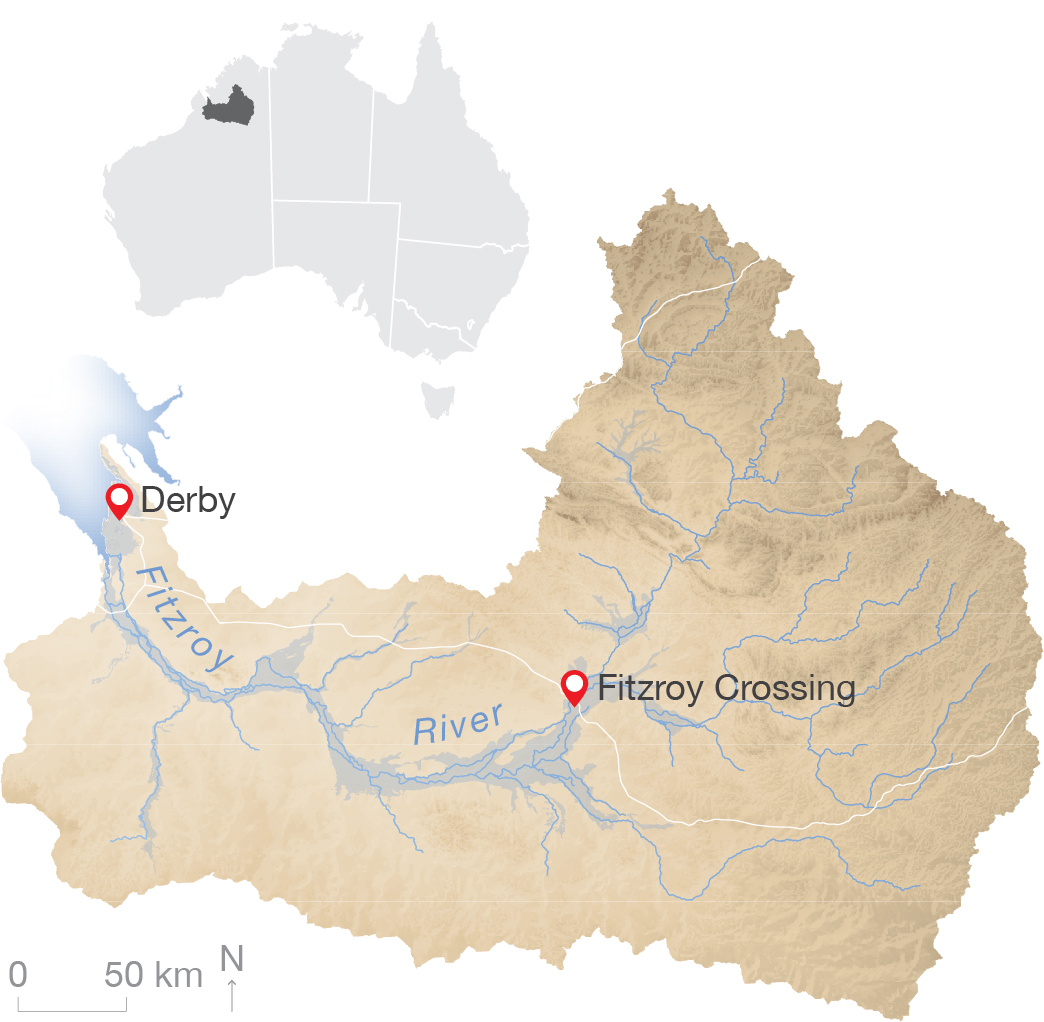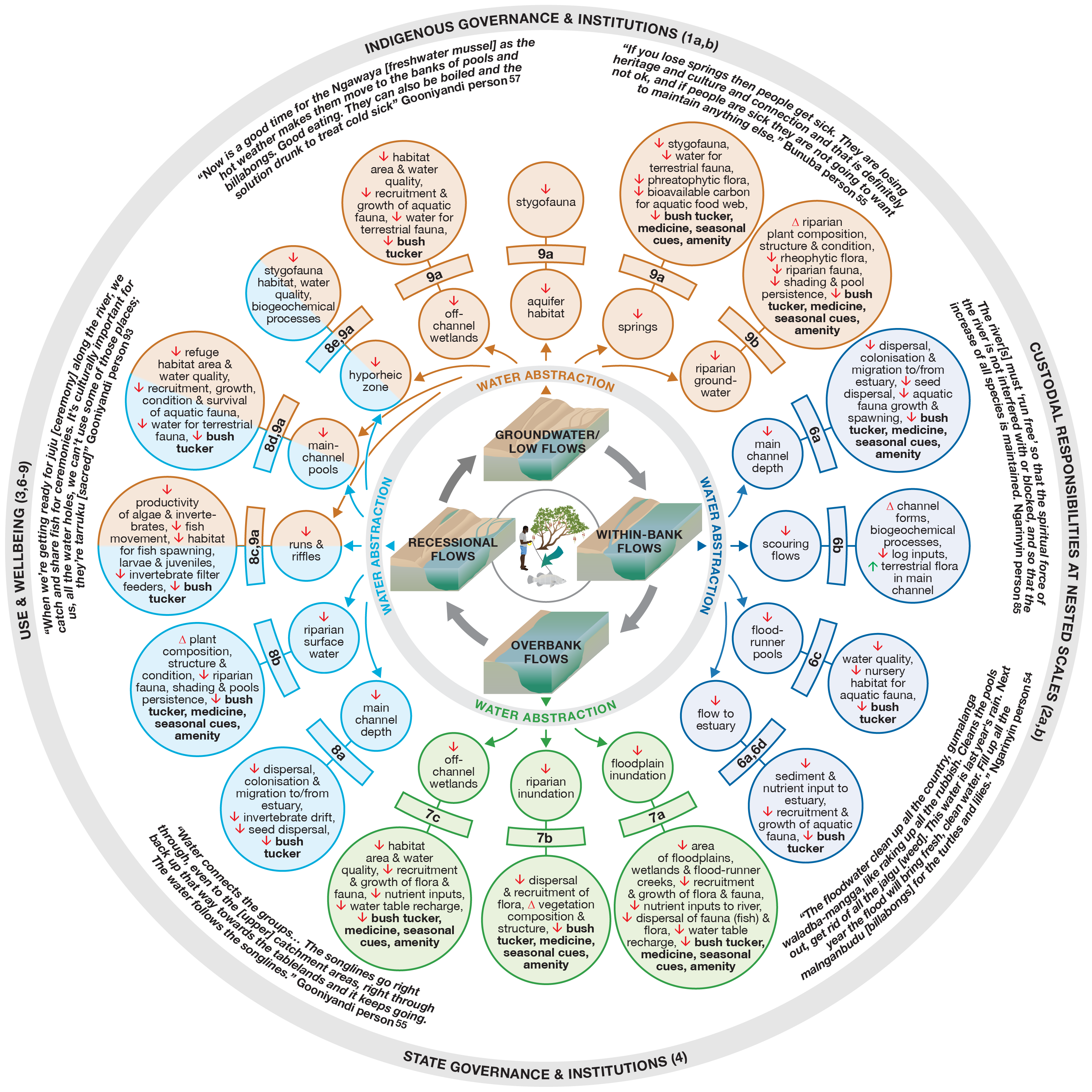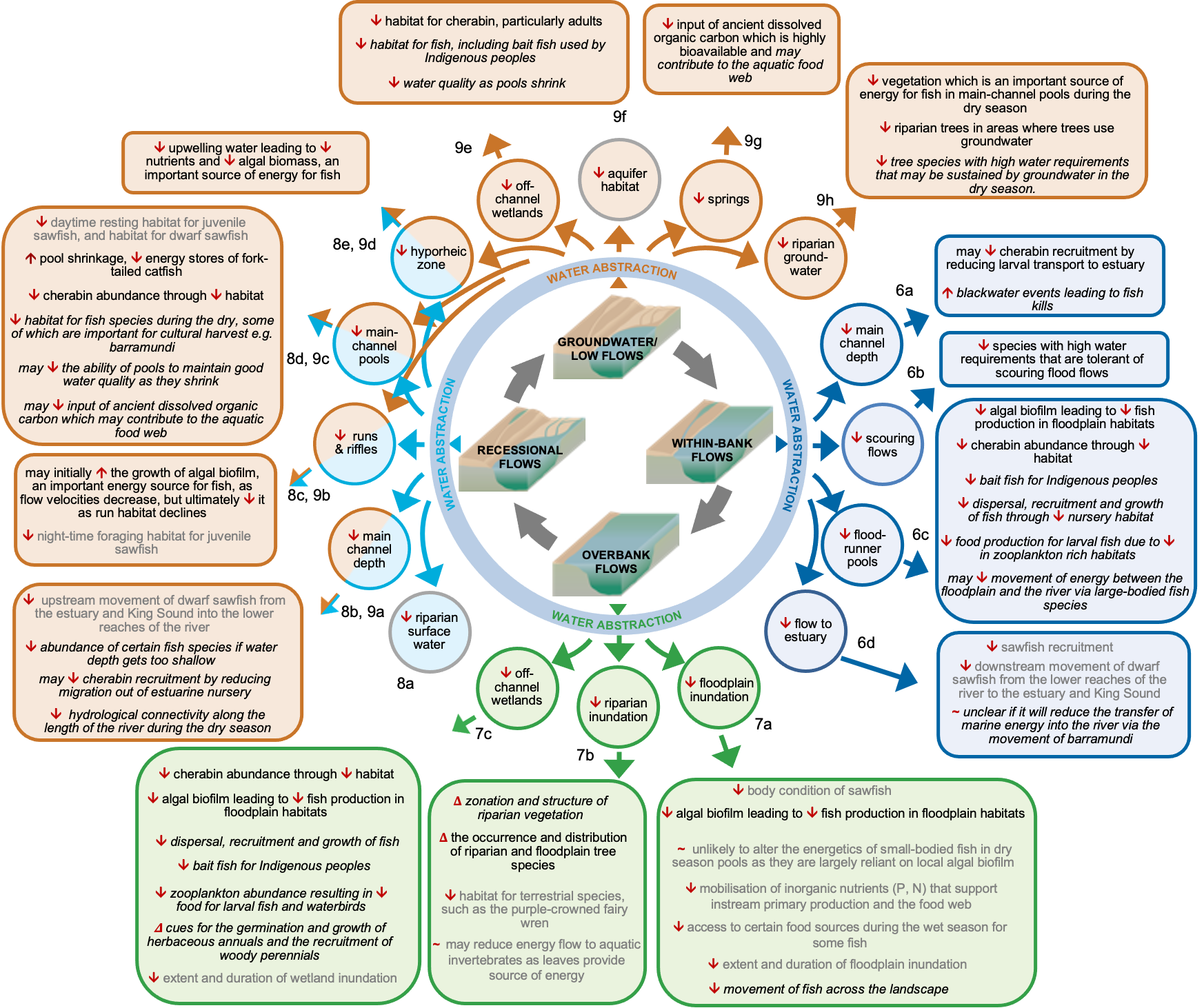This project aimed to determine environmental water requirements of key plants and animals for the Fitzroy River in the Kimberley region of Western Australia.
An initial conceptual model was developed (from literature reviews) to describe hydro-socio-ecological relationships to encourage more integrated and inclusive water allocation planning. This included 10 key considerations for water planning which fed into the development of initial water-planning documents by the Western Australian Government.
The ecological relationships in this conceptual model were largely based on evidence from elsewhere in northern Australia (and even further afield), as there was very little data on the relationships between flow and biota or habitats for the Fitzroy itself. This helped to identify key ecological knowledge gaps for the Fitzroy River. These knowledge gaps guided research design and data collection for on-ground studies focusing on freshwater biota (algae, fish, cherabin) and riparian vegetation in the Fitzroy, conducted in partnership with Traditional Owners and Indigenous rangers.
This new research details five flow-biota relationships and 14 habitat-biota relationships, including studies on algal biomass, fork-tailed catfish, cherabin and riparian vegetation. Flow-biota relationships are particularly useful for environmental water planning because they provide a direct link between river flow and an ecological outcome – such as cherabin population size and catfish body condition – indicating potential implications of water extraction.
The initial conceptual model was updated and refined with new ecological evidence that emerged during the project, resulting in a model that is populated largely by knowledge generated from research undertaken in the Fitzroy instead of elsewhere. This model is more defendable and provides stronger evidence for water planning, but with less ecological breadth than the initial version.
We recommend that both models be used to guide management decision-making and policy development for the river.

The Fitzroy River in the Kimberley region of Western Australia.

The initial hydro-socio-ecological conceptual model of the impacts of water abstraction in the Fitzroy River. The model is centred on four flow phases and the potential impacts of abstraction during each flow phase. Small inner circles describe impacts on hydrology and physical habitats, large outer circles describe impacts on habitat availability and quality, and water-dependent biota and ecological processes. Impacts of particular interest to Indigenous people are in bold type. The quotes illustrate Indigenous perspectives on hydro-socio-ecological relationships. The outer circle encompasses the key social factors and conditions that affect water allocation planning. Taken from Douglas et al. (2019) and available in pdf format here.

The revised conceptual model using only research undertaken in the Fitzroy River. Black text = evidence from this project, published; black text italicised = evidence from this project, unpublished. Grey text = evidence from other sources, published. Available in pdf format here.
The Northern Australia Environmental Resources Hub addressed key research questions to come up with practical, on-ground solutions to some of the north’s most complex environmental challenges. A transdisciplinary research approach has been at the heart of the hub. Integrating key research users – policy-makers and land managers including Traditional Owners and ranger groups – into the co-design of research projects has led to rapid uptake of research outcomes into land management practices and decision-making. The hub has produced this wrap-up video outlining these impacts from the perspectives of research users.
David Crook discusses how otolith chemistry can help explain and document fish life history.
The project was led by Professor Michael Douglas from The University of Western Australia (UWA). Professor Douglas was assisted by researchers from UWA, Charles Darwin University, Griffith University and the Western Australia Department of Water and Environmental Regulation.
Gooniyandi Aboriginal Corporation PBC, Walalakoo Aboriginal Corporation PBC, Wilinggin Aboriginal Corporation and Yi-Martuwarra/Yanunijarra Aboriginal Corporation PBC were collaborators in this research.
This project was completed in June 2021.
Contact
Professor Michael Douglas, UWA
michael.douglas@uwa.edu.au